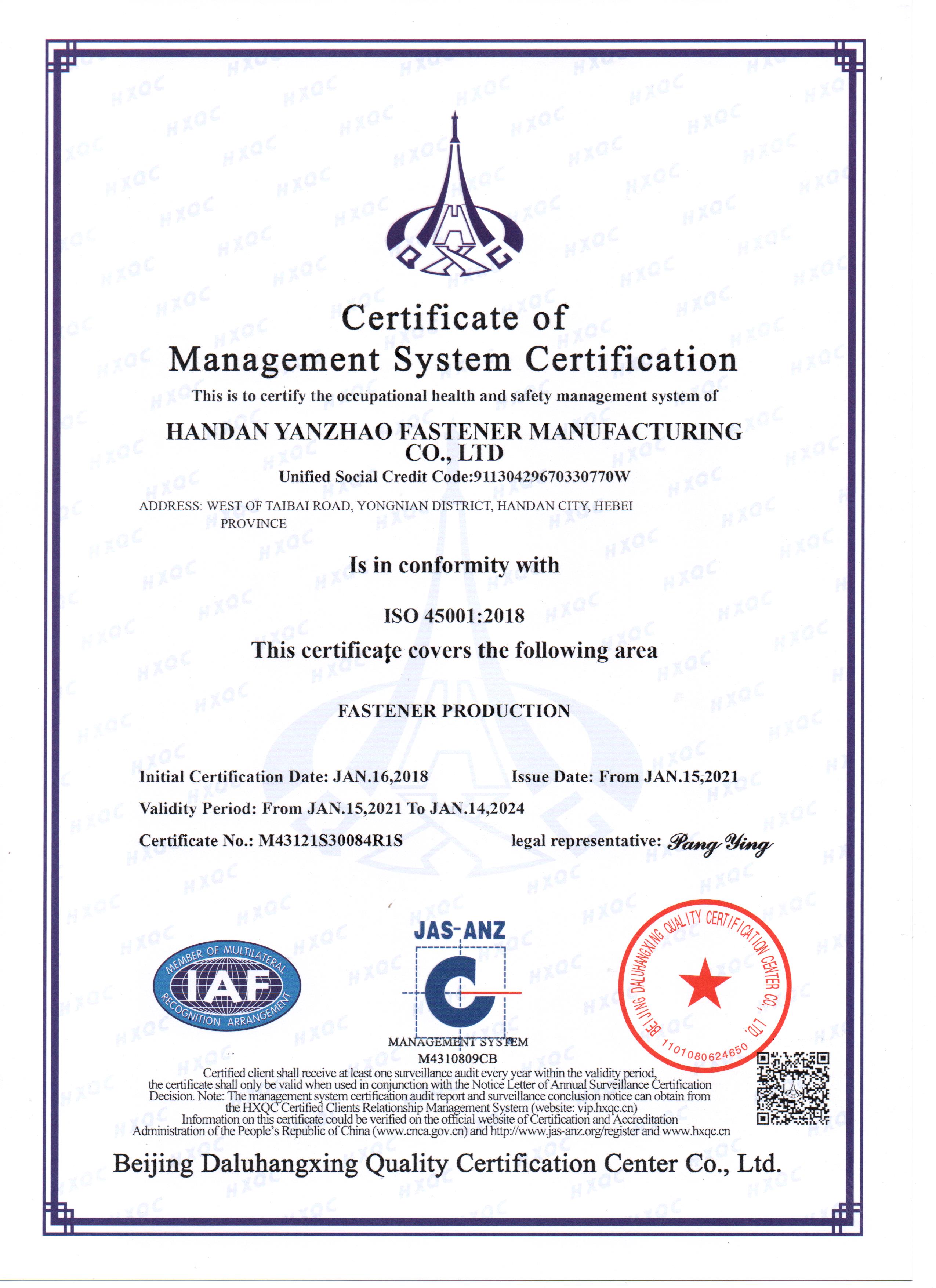6mm stud bolt company
Nov . 18, 2024 11:04 Back to list
6mm stud bolt company
Understanding the Importance of 6mm Stud Bolt Companies
Stud bolts are essential components used in various industries, particularly in construction, automotive, and manufacturing. Among the many sizes available, 6mm stud bolts have gained significant attention due to their versatility and reliability. This article will explore the significance of companies that specialize in 6mm stud bolts, highlighting their roles, manufacturing processes, applications, and the factors to consider when choosing a supplier.
The Role of 6mm Stud Bolt Companies
Companies that produce 6mm stud bolts play a crucial role in the supply chain of various industries. These companies are responsible for the design, manufacturing, and distribution of stud bolts that meet specific standards and requirements. A stud bolt typically comprises a long cylinder with threads on both ends, and it is used to attach two or more components together securely.
Such companies ensure that their products are made from high-quality materials, able to withstand high levels of stress and resistance to corrosion. This reliability is particularly important in applications where safety and durability are paramount, such as in construction and heavy machinery.
Manufacturing Processes
The manufacturing of 6mm stud bolts involves several key processes, each crucial for ensuring the quality and performance of the final product. The primary stages include
1. Material Selection High-strength materials such as carbon steel, stainless steel, and alloys are chosen to enhance performance and corrosion resistance.
2. Machining This step involves cutting the metal into the desired length and shape. Precision is essential to ensure that the threads are accurately formed and that the bolt meets the specified dimensions.
3. Heat Treatment To improve strength and toughness, many stud bolts undergo heat treatment. This process alters the microstructure of the metal, resulting in enhanced properties.
4. Thread Rolling After machining, threads are formed by rolling. This method preserves the strength of the bolt compared to cutting threads, which can weaken the material.
5. Surface Finishing Stud bolts may undergo various finishing processes to improve surface quality and protect against corrosion. This can include coatings such as zinc plating or black oxide.
6. Quality Control Rigorous testing and inspection ensure that each stud bolt meets industry standards. This may involve tensile testing, hardness testing, and visual inspections.
6mm stud bolt company

Applications of 6mm Stud Bolts
6mm stud bolts are widely used across numerous applications. In construction, they are often used to fasten structural components such as beams, columns, and panels. In the automotive industry, they can secure parts like engine components and frames. Additionally, they are prevalent in machinery, where they help hold together critical components under substantial stress.
Moreover, they are also vital in piping systems for industries like oil and gas, where they hold flanges and prevent leaks. Their small size makes them adaptable for use in tight spaces without sacrificing strength.
Choosing the Right Supplier
When selecting a company for 6mm stud bolts, several factors should be considered
- Quality Certifications Look for suppliers with recognized quality certifications, such as ISO 9001. This underscores a commitment to quality and consistent production standards.
- Customization Options A good supplier should be able to offer customization options to cater to specific project requirements, such as length, thread pitch, and coating.
- Technical Support Companies that provide technical advice and support can be invaluable, especially when dealing with unique applications or materials.
- Reputation and Reviews Researching a company’s reputation through customer reviews and testimonials can provide insight into their reliability and product quality.
- Delivery Times Timely delivery is essential in maintaining project schedules. Ensure that the supplier can meet your deadlines.
Conclusion
6mm stud bolt companies are pivotal players in ensuring that industries have access to reliable and durable fastening solutions. Their manufacturing expertise, focus on quality, and ability to meet specific needs make them indispensable to sectors across the board. When choosing a supplier, taking the time to evaluate their capabilities and reputation can lead to significant long-term benefits for any project.
Latest news
-
High-Quality Panel Stud Bolt Reliable Panel Stud Bolt Factory & Suppliers
NewsJul.08,2025
-
High-Precision Fine Thread Locknuts Manufacturer & Supplier Custom Solutions
NewsJul.08,2025
-
PH Imperial Stud Bolt – High Strength Fasteners from Leading Supplier & Factory
NewsJul.07,2025
-
High-Quality Allen Wrench Bolts Leading Factory, Company & Suppliers
NewsJul.07,2025
-
Wholesale Ball Stud Bolt - High Quality Supplier & Factory Price Reliable Wholesale Ball Stud Bolt Company
NewsJul.06,2025
-
High-Strength Alloy Bolts Manufacturer & Supplier Quality Alloy Fasteners Factory
NewsJul.06,2025
